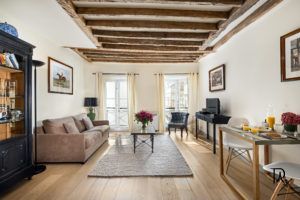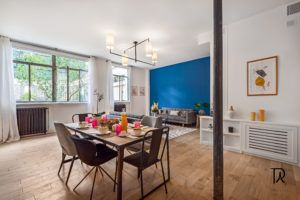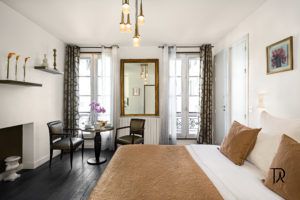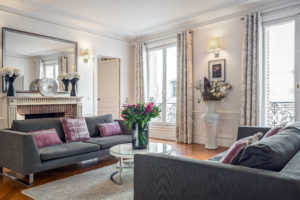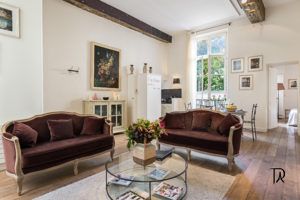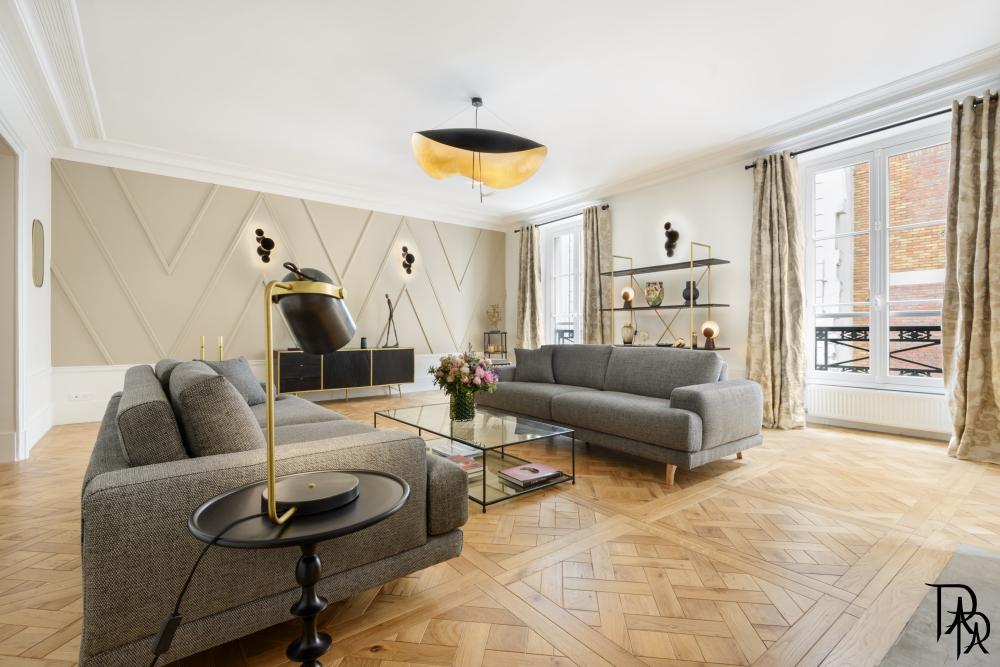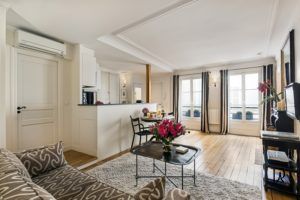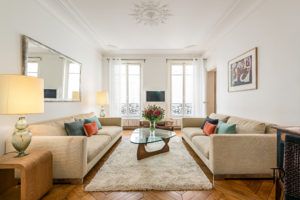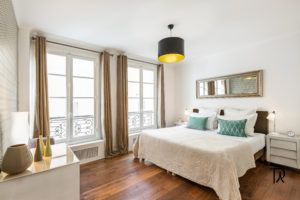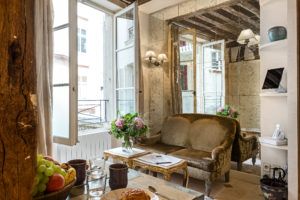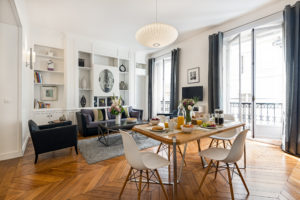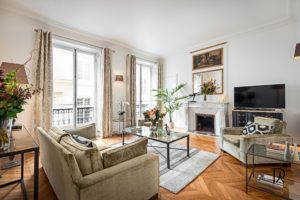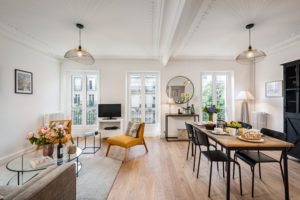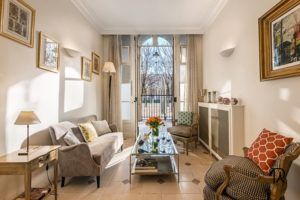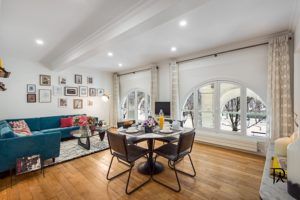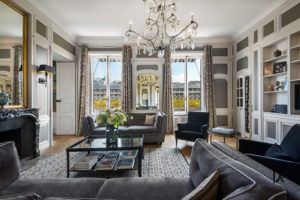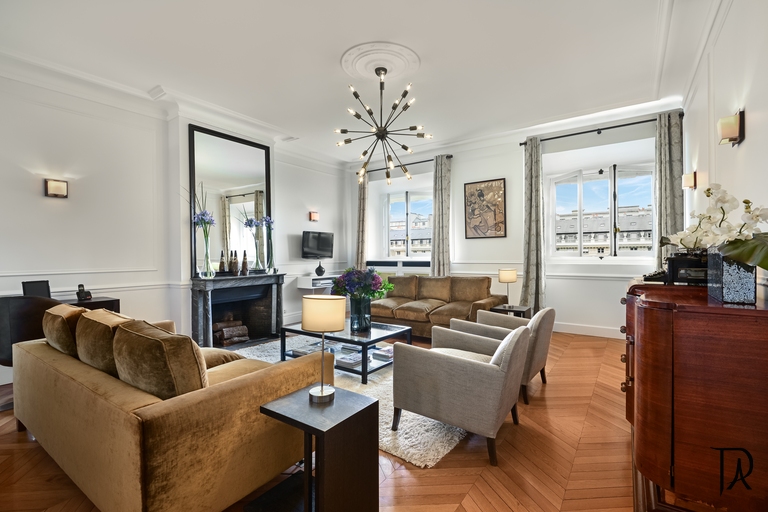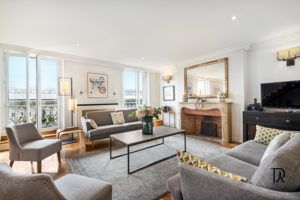



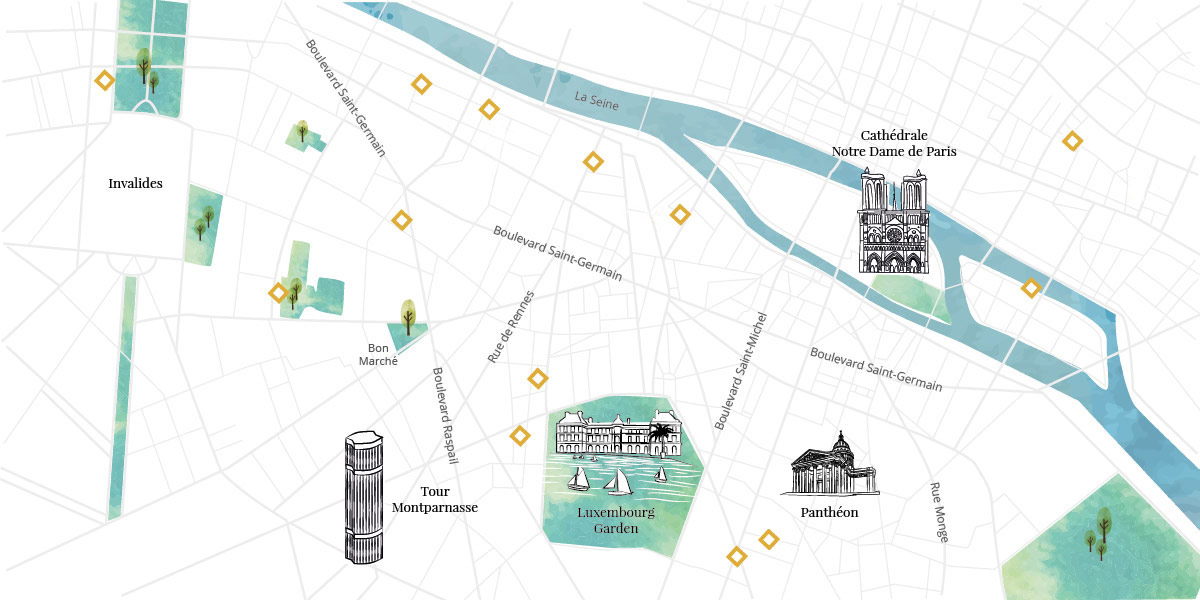

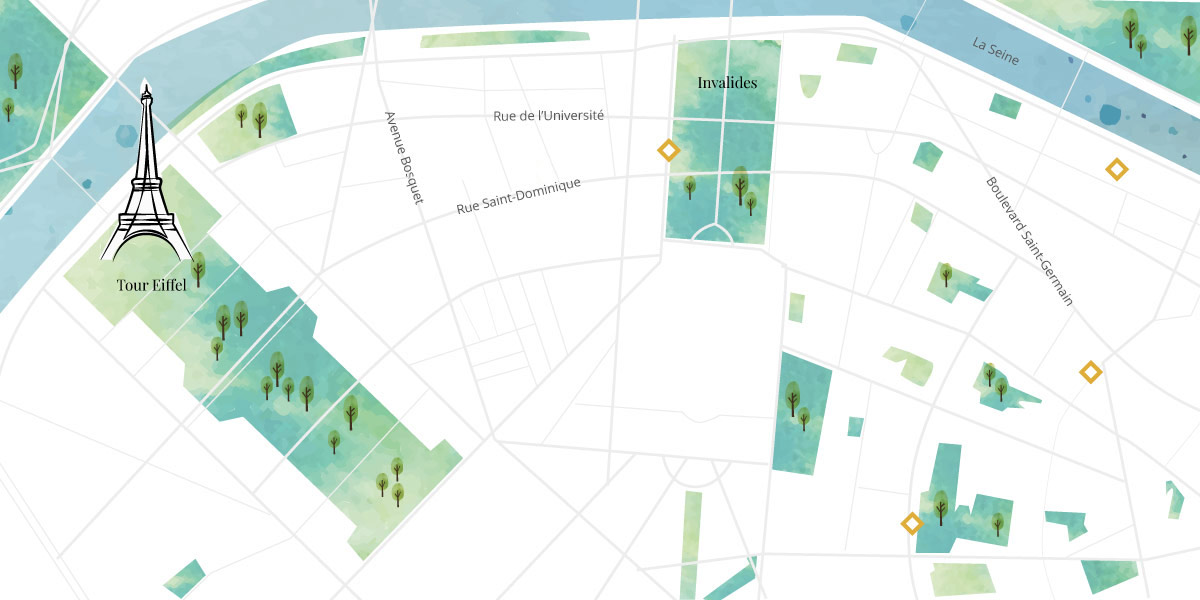

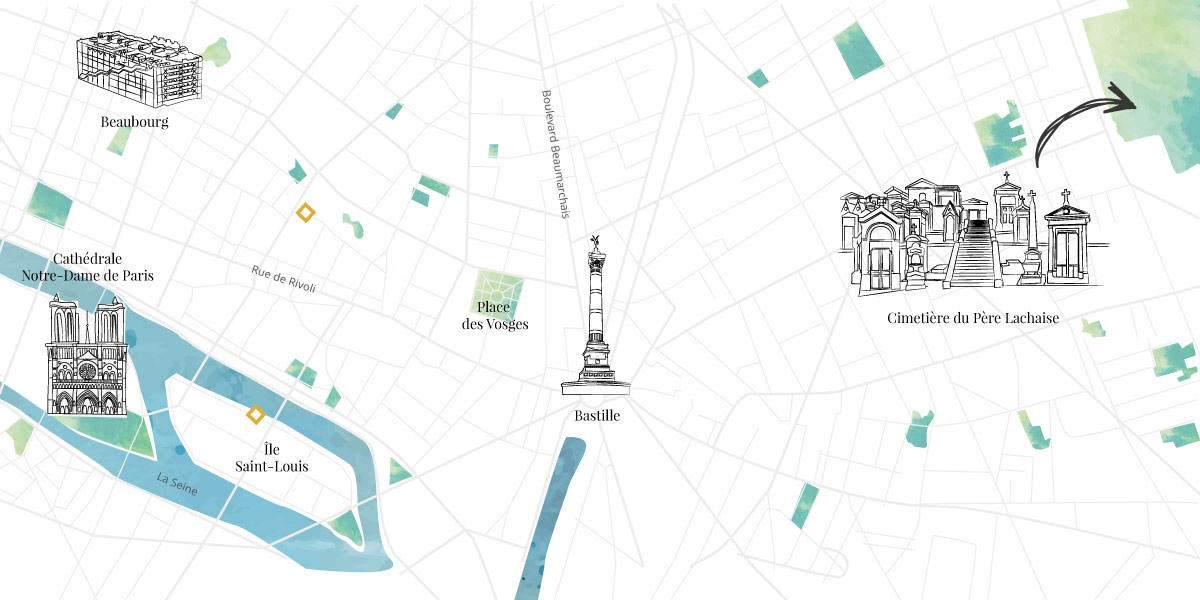

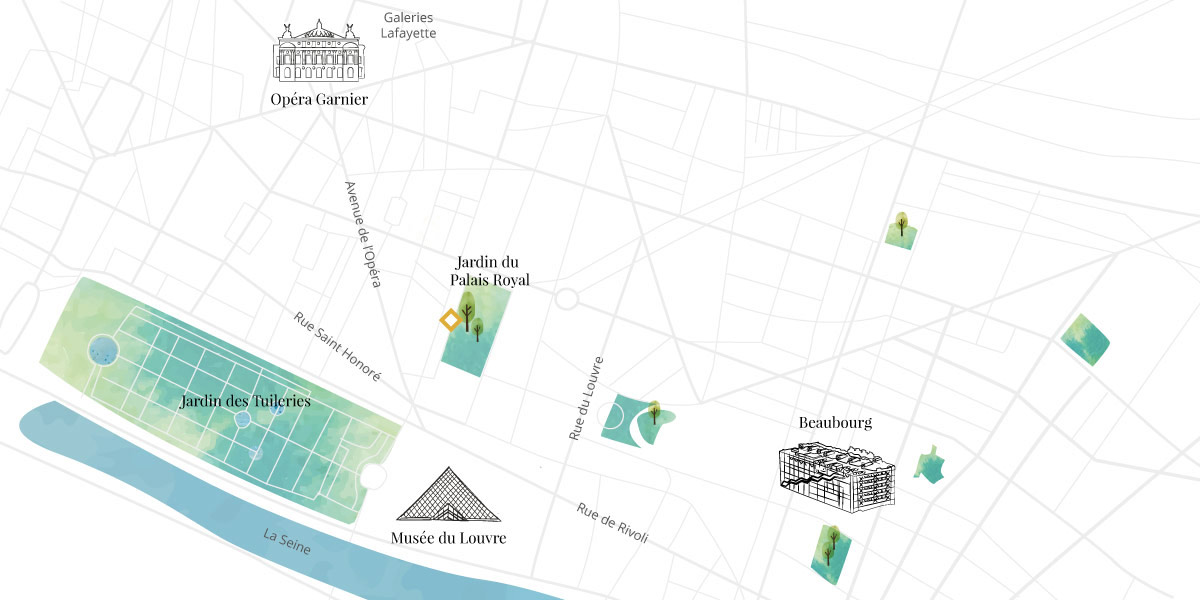

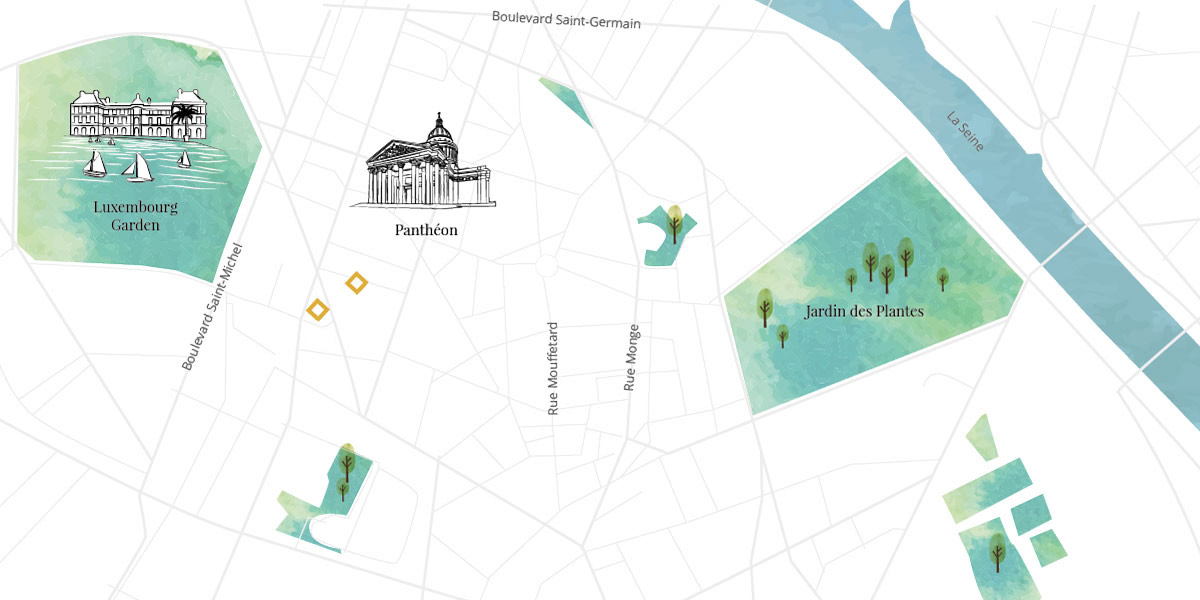

Saint-Germain des Prés
The Saint-Germain-des-Prés district is located in the 6th arrondissement around the abbey of the same name. Little by little, a small agglomeration formed around the Abbey which was consecrated around 558 by the bishop of Paris, Germain. The district acquired its unique soul because of attraction it had on intellectuals since the 17th century. The latter would pass through Saint-Germain and leave the imprint of their talents. At the time, Saint-Germain-des-Prés was but a small village. After the Second World War, the district became the place to be for all intellectual and cultural life of Paris with artists such as Marguerite Duras, Jean-Paul Sartre and Simone de Beauvoir.
Marais
As its name suggests, the Marais was originally a marshy area with little hospitality. It was however occupied from the 12th century. Religious communities settled there, followed by Templars. From the 16th century, the neighborhood changed and became more aristocratic, the pleasure residences replacing the fortified walls. Rue des Archives, rue Charlot, rue Vieille du Temple became fashionable and the bourgeoisie took over the district in the 18th century. It was from this time that the Marais then acquired the mansions that we know. Due to its central location, the district is spared by the great works of Baron Haussmann. Over time, it evolves, recent constructions rub shoulders with the most secular.
Palais Royal Musée du Louvre
In the 18th century, with the reign of Louis XIV came the beginning of intense development in the district: the first boulevards were laid out, the old ramparts were replaced by a wide planted promenade. The Opera Garnier being one of the most emblematic works of the Second Empire that transformed the city, an architectural marvel of Napoleon III between baroque and renaissance. The palace and the garden of Palais Royal are bequeathed to Louis XIII on the death pf Cardinal Richelieu and the Royal family stettled there. The bloom of luxury shops, theaters and Belle-Epoque cafes where Zola, Flaubert and Cézanne would go, the Grands Boulevards become the praise of Parisian pleasures. Even today, the Palais Royal district and the Louvre museum remain a major touristic and cultural center.
Quartier Latin
This central neighborhood on the Left Bank is a renowned historical student district notably because of the nearby prestigious Sorbonne University. It is called the Latin Quarter because it is located on what was once the Roman village of Lutetia. In fact, the name of the district come from the medieval period during which the only language used to teaching in all the schools and universities was Latin. The Latin traces are still quite present with several Golla-Roman vestiges such as the arenas of Lutèce and the ancient thermal baths of Cluny.



